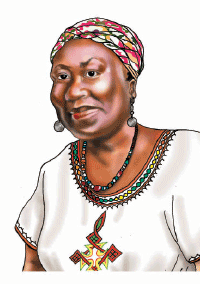The necessity for citizens of the world to acquire skills relative to lifelong learning was one of the vital “tools” for the twenty-first century identified by the United Nations Education, Scientific and Cultural Organisation (UNESCO) at the turn of the century. Conscious of the pace at which change was happening around the world – and not only in the scientific and technological sectors, which were quite spectacular – the UNESCO looked to experts in various fields of endeavour to come up with recommendations which would help prepare people to properly engage with the challenging times that lay ahead. Great attention was paid to the young people of the world in particular, and among the recommendations made by one of the committees was that the learning of foreign languages be actively promoted in educational institutions. These UNESCO committees of experts worked during the final decade of the last century, that is, in the 1990s, and one is bound to wonder how far their recommendations have been applied in various countries, and how effective the recommended tools have been in enabling citizens cope with the demands of twenty-first century living.
It is not difficult to imagine how useful and readily applicable in today’s world a skill like the knowledge of foreign languages would be. The world has been bitten by the travel bug, and for that purpose languages become very useful. While tourists do not necessarily feel compelled to learn the language(s) spoken in the country of their destination, what has become striking is the fact that the service providers in the tourism industry themselves are paying more attention to offering their services in an increasing number of languages. On a recent Lufthansa flight I travelled on, the crew had competence in some seven or eight languages among them, and passengers were impressed when that was announced. Obviously, foreign language skills would be an additional advantage in the recruitment of stewards and air hostesses. Some hotels in high tourist destinations equally conduct foreign language training for their staff. An American friend of mine was employed by a hotel in Phuket, Thailand for several years, and her job was to teach English to the hotel’s staff in order to enable them communicate easily with the hotel residents. There were probably other language teachers teaching their staff Japanese, Chinese, Spanish or French as well, depending on where most of the tourists in their hotel came from.
Another important skill to acquire or develop in the fast-paced world of the twenty-first century is that of the mastery or the management of time. This is the reason that time management has become an important seminar and workshop topic in recent years; but, very unfortunately, it is an area where many of us Nigerians (not to say Africans) fail woefully. In countries where wages are calculated by the hour, that is a clear indication that productivity is of utmost concern. The world has become highly competitive; those who make the most of their time are definitely going to be ahead of the pack. As we look forward to our profile rising on the global scene in the years ahead (hopefully, after defeating Boko Haram and meting out justice to the corrupt people who have stolen our common wealth), could we begin to deliberately teach time management, not only in our educational institutions, but to the general populace as well? Timeliness and time consciousness must become institutionalised in our public life; it is a resource we must learn to manage if we aspire towards a higher level of development. We could start with some basic steps: starting our meetings on time and consciously reducing how long they last (for example, by limiting the jokes and not giving “another round of applause” to speakers!)
Apart from such clear and tangible skills, however, one wonders what others would be required for lifelong learning? In a world where television and the internet constantly bombard us with stories and images of sometimes momentous changes happening in various places, one needs some kind of emotional and psychological preparedness or stabilising force to handle all that is thrown at us. The world is in a flux, constantly, and it requires nerves of steel, almost, to be able to withstand the assault from the news which come rushing at us or, even worse, the unsettling events which we ourselves might be subjected to.
It is not certain that the UNESCO experts made recommendations regarding how to prepare for 9/11, or Al Shabbab and Boko Haram. What skills could they have recommended for coping with terror, or war, or the crashing of the economy of one’s country, as it recently happened in Greece? Of course, governments do not give themselves such responsibilities and, indeed, such occurrences are usually not planned for. The unfortunate thing, however, is that these kinds of occurrences are becoming more and more prevalent in the world, and an increasing number of citizens of the world are being subjected to traumatic experiences for which they were not prepared. The effect is being seen, I wish to suggest, in the increasing cases of hypertension, mental disorders, anti-social behaviour and other maladies which we have been witnessing. It would appear that NGOs and, more importantly, religious bodies must begin to teach in a more deliberate manner how to handle such eventualities, and this might involve teaching more detachment from that which is physical and material.














